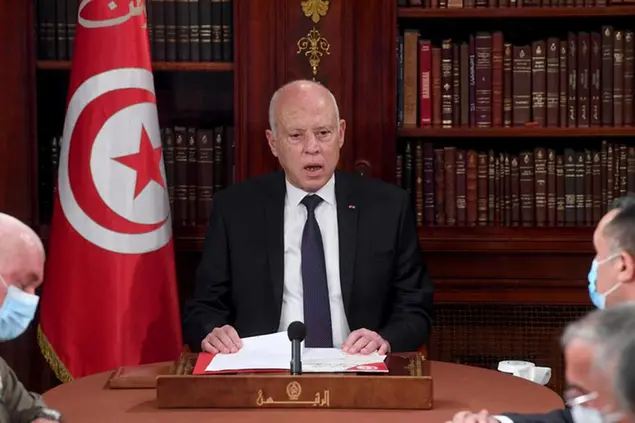- Gli occhi del mondo arabo e in gran parte anche di quello europeo sono tutti puntati sulla Tunisia. Il presidente Saied ha negato che si sia trattato di un colpo di stato e ha detto di aver agito in difesa della Tunisia e del suo popolo rispettando la Costituzione.
- La percezione è che a gran parte della popolazione tunisina importi poco dibattere se sia stato un colpo di stato oppure no. Negli ultimi mesi la disperazione ha raggiunto livelli mai visti negli ultimi dieci anni e sono sempre di più i giovani tunisini che vogliono lasciare il paese e attraversare il Mediterraneo.
- Dall’Ue agli Stati Uniti e la Russia, per ora restano tutti a guardare salvo qualche dichiarazione di contesto. Ma la paura di una nuova ondata di arrivi potrebbe spingere l’Unione europea a pressare di più il presidente tunisino.
La Tunisia cerca il dialogo interno dopo la mossa di Saied

27 luglio 2021 • 19:09